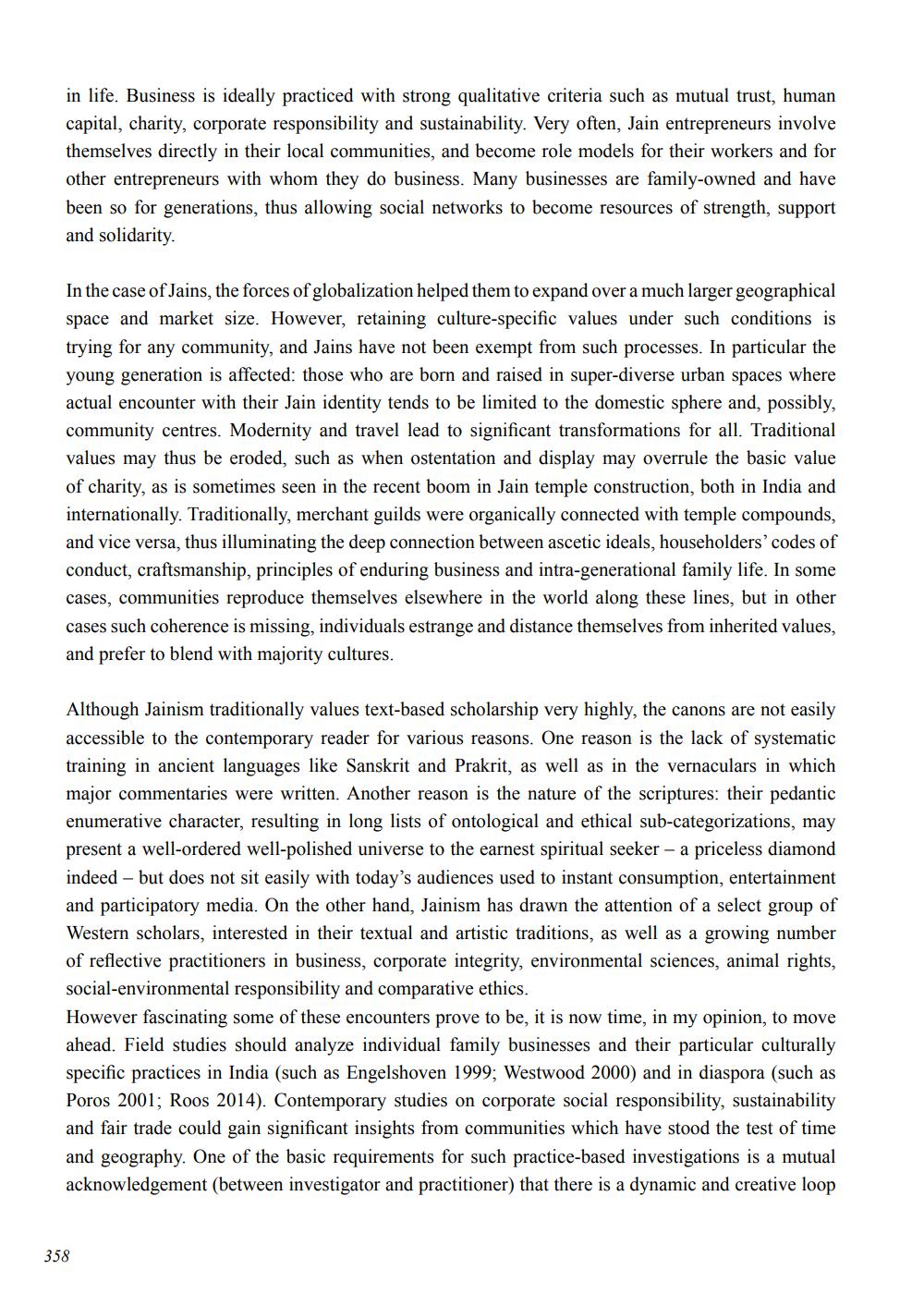________________
in life. Business is ideally practiced with strong qualitative criteria such as mutual trust, human capital, charity, corporate responsibility and sustainability. Very often, Jain entrepreneurs involve themselves directly in their local communities, and become role models for their workers and for other entrepreneurs with whom they do business. Many businesses are family-owned and have been so for generations, thus allowing social networks to become resources of strength, support and solidarity.
In the case of Jains, the forces of globalization helped them to expand over a much larger geographical space and market size. However, retaining culture-specific values under such conditions is trying for any community, and Jains have not been exempt from such processes. In particular the young generation is affected: those who are born and raised in super-diverse urban spaces where actual encounter with their Jain identity tends to be limited to the domestic sphere and, possibly, community centres. Modernity and travel lead to significant transformations for all. Traditional values may thus be eroded, such as when ostentation and display may overrule the basic value of charity, as is sometimes seen in the recent boom in Jain temple construction, both in India and internationally. Traditionally, merchant guilds were organically connected with temple compounds, and vice versa, thus illuminating the deep connection between ascetic ideals, householders' codes of conduct, craftsmanship, principles of enduring business and intra-generational family life. In some cases, communities reproduce themselves elsewhere in the world along these lines, but in other cases such coherence is missing, individuals estrange and distance themselves from inherited values, and prefer to blend with majority cultures.
Although Jainism traditionally values text-based scholarship very highly, the canons are not easily accessible to the contemporary reader for various reasons. One reason is the lack of systematic training in ancient languages like Sanskrit and Prakrit, as well as in the vernaculars in which major commentaries were written. Another reason is the nature of the scriptures: their pedantic enumerative character, resulting in long lists of ontological and ethical sub-categorizations, may present a well-ordered well-polished universe to the earnest spiritual seeker - a priceless diamond indeed - but does not sit easily with today's audiences used to instant consumption, entertainment and participatory media. On the other hand, Jainism has drawn the attention of a select group of Western scholars, interested in their textual and artistic traditions, as well as a growing number of reflective practitioners in business, corporate integrity, environmental sciences, animal rights, social-environmental responsibility and comparative ethics. However fascinating some of these encounters prove to be, it is now time, in my opinion, to move ahead. Field studies should analyze individual family businesses and their particular culturally specific practices in India (such as Engelshoven 1999; Westwood 2000) and in diaspora (such as Poros 2001; Roos 2014). Contemporary studies on corporate social responsibility, sustainability and fair trade could gain significant insights from communities which have stood the test of time and geography. One of the basic requirements for such practice-based investigations is a mutual acknowledgement (between investigator and practitioner) that there is a dynamic and creative loop
358




